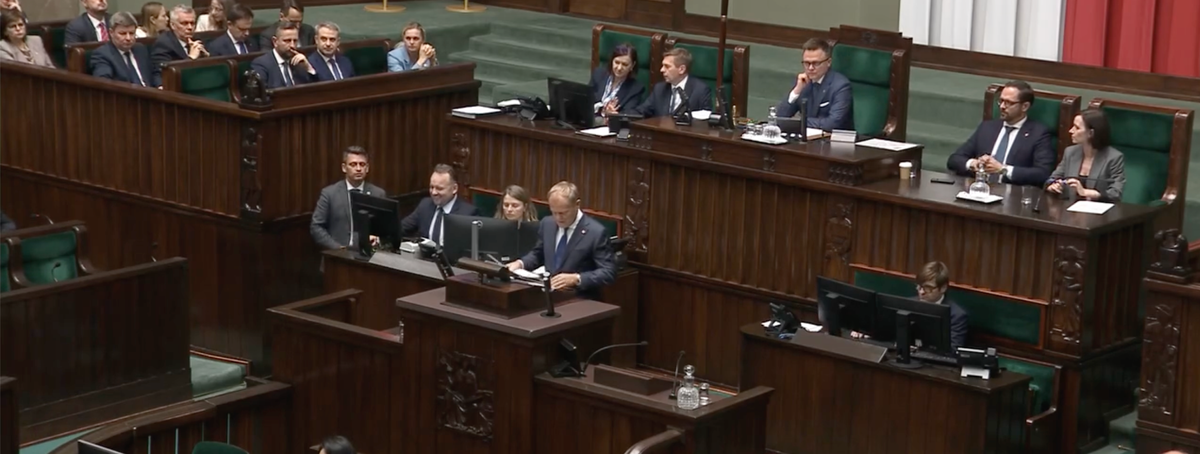
Polish gov't wins confidence vote but presidential veto remains
Polish Prime Minister Donald Tusk’s pro-EU coalition won a confidence vote in Parliament with 243 MPs in favour and 210 against, on Thursday, 12 June.
The vote followed the narrow presidential election victory of Karol Nawrocki, a conservative supported by the opposition Law and Justice party (PiS). The Polish president has the power to veto legislation, and Tusk's move has been widely interpreted as a move by Tusk to reinforce his government’s legitimacy in the face of the continuing veto threat.
Ahead of the vote, Tusk told the Sejm, “We are facing two and a half years, in difficult conditions, of full mobilisation and full responsibility. I have the conviction, faith and certainty that we have a mandate to govern, to take full responsibility for what is happening in Poland.”
The confidence vote was a formality, with Tusk’s Civic Coalition (KO) holding a 12-seat majority and only a simple majority required for passage.
Tusk acknowledged the expected use of veto by President-elect Nawrocki, as did outgoing President Andrzej Duda during the first 18 months of the KO's term. The KO does not have the 3/5 supermajority, or 276 out of 460 seats, needed to overturn a presidential veto.
“Nothing can be done about that”, Tusk said, adding that the reconfirmation by Parliament puts the government “on the front foot again, at least for now".
Policy standoffs likely
President-elect Nawrocki, who will take office in July, opposes deeper EU integration, has rejected Polish support for Ukraine’s entry into the EU and NATO, and has positioned himself as an ally of US President Donald Trump.
The Polish government lacks the numbers to pass flagship reforms, including liberalising abortion up to 12 weeks and removing political influence from courts. Tusk did not address these issues in his speech, reflecting ongoing coalition divisions and the likelihood of continued vetoes.
The European Commission (EC) released previously withheld EU funds to Poland after Tusk’s government pledged to roll back PiS-era judicial reforms, but the EC’s decision drew accusations of double standards from PiS. Tusk said, “No one is as keen as I am to end Poland’s legal chaos,” but conceded Nawrocki’s ability to frustrate his agenda.
Tusk argued that his government had outperformed PiS on defence spending and migration, saying, “Poland has returned to Europe’s top table", citing the mutual defence treaty signed with France in June. This agreement commits both countries to come to each other’s aid in the event of attack, reflecting Warsaw’s push for stronger bilateral EU security ties amid continued political polarisation.
Cabinet reshuffle planned
Tusk confirmed that a cabinet reshuffle would take place in July, aiming to adjust the coalition’s policy focus for the remainder of the parliamentary term.
With the executive and legislature set for confrontation, and the pro-EU government unable to override presidential vetoes, policy progress on contentious issues is expected to stall. Poland’s parliamentary and presidential split will test investor confidence and regional alignment as Central and Eastern Europe faces continued security, migration and EU rule of law challenges.
